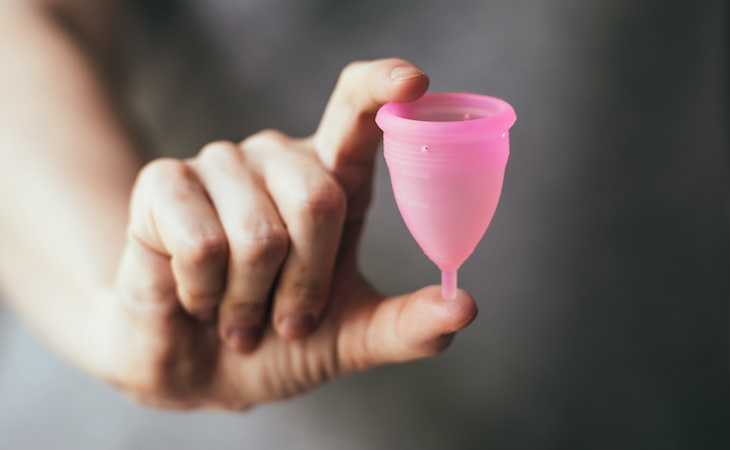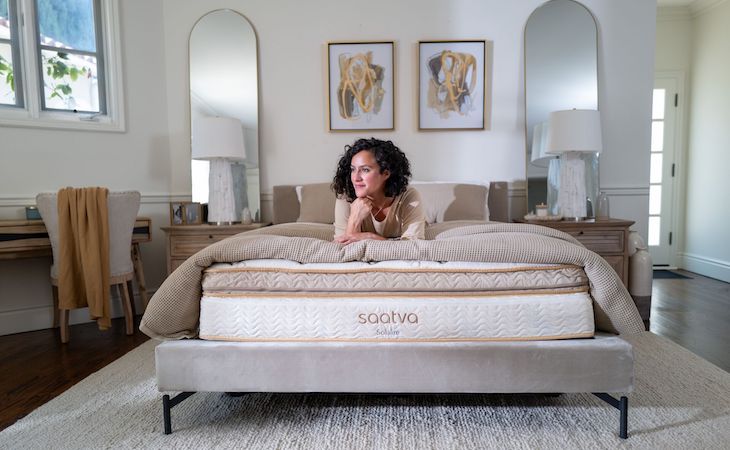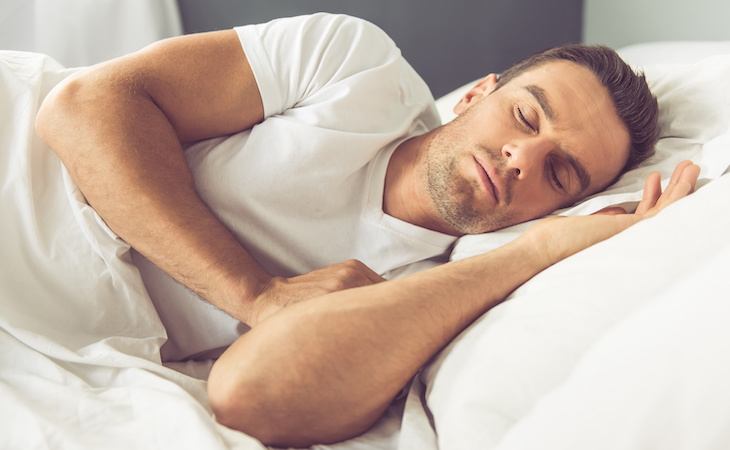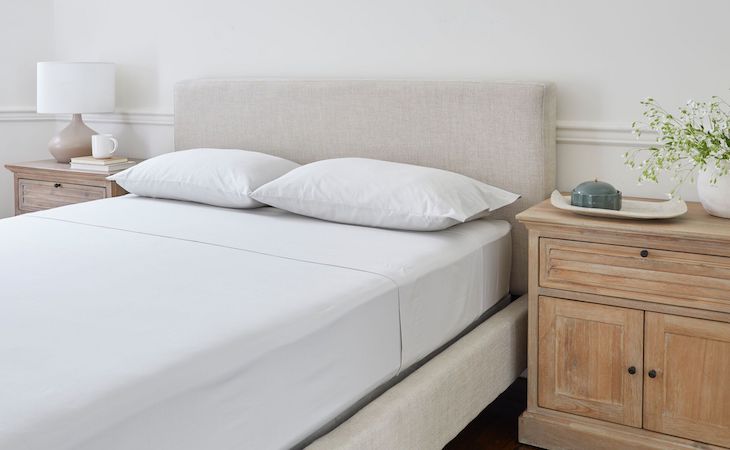Menstrual cups are becoming an increasingly popular method for managing periods, with many raving that they offer higher comfort, less leakage, and better all-around comfort.
But what about at night? If you’re currently using (or considering using) a cup, then you may be wondering: Can you sleep with a menstrual cup?
The short answer to that question is yes. Let’s take a look at everything you need to know about sleeping with a menstrual cup—including how to do it safely and comfortably.
Can you sleep with a menstrual cup in?
As mentioned, it’s safe to sleep with a menstrual cup—and, in some cases, preferable to other methods.
“You can—and, depending on your flow, should—sleep with a menstrual cup in,” says Ila Dayananda, MD, board-certified ob-gyn and chief medical officer of Oula Health. “As long as the menstrual cup is empty, clean, and inserted properly, sleeping with one can be much more effective than a tampon or pad.”
Why? “Because of the amount [the menstrual cup] can hold and the length of time it can stay inserted,” says Dayananda.
“You can—and, depending on your flow, should—sleep with a menstrual cup in. As long as the menstrual cup is empty, clean, and inserted properly, sleeping with one can be much more effective than a tampon or pad.”
Ila Dayananda, MD, board-certified ob-gyn and chief medical officer of Oula Health
Depending on the size of the cup, they generally can hold anywhere from 20 (on the small side) to 35 ml (for larger cups) of fluid. By comparison, super absorbency tampons generally hold between 9 and 12 ml—while overnight pads absorb about 10 to 15 ml of fluid.
In addition to holding more fluid, menstrual cups can also be left in for significantly longer than tampons; while tampons need to be changed every four to eight hours, menstrual cups can be left in anywhere between eight and 12 hours, depending on flow.
Menstrual cup concerns during sleep
Menstrual cups are ideal for sleeping—but that doesn’t mean people don’t have concerns.
For example, some people worry that a menstrual cup can get “lost” in their body while they sleep. But that’s just not possible as the cervix prevents the menstrual cup from leaving the vaginal canal. There’s no way for the cup to enter the uterus while you’re asleep (or at any time, for that matter).
Another common concern is leakage. But, when inserted correctly, menstrual cups create a seal, preventing fluid from leaking out—often significantly better than tampons, which don’t create the same kind of seal.
Hygiene is also a concern for some. But as long as you’re regularly washing your menstrual cup (and your hands), this is a hygienic option for dealing with periods overnight.
Bottom line? “Menstrual cups take some practice getting used to, but with cleanliness and correct insertion, these causes for concern should be relatively eliminated,” says Dayananda.
Tips for sleeping comfortably with a menstrual cup
So again, can you sleep with your menstrual cup? Yes. But there are definitely strategies you can use to make sleeping with a menstrual cup more effective (and comfortable!), including:
Find the right cup
Menstrual cups aren’t uniformly made; there are a variety of cups—and sizes—to choose from. If you want to find the cup that’s going to be best for you? “Try different brands to see what works best for your body and comfort level,” says Dayananda.
Once you insert a menstrual cup, you shouldn’t feel any discomfort; if you do, then it’s either inserted correctly or is the wrong shape or size. Additionally, you want to choose a cup that can accommodate your flow—particularly if you plan to use it overnight for eight or more hours.
Keep experimenting with different menstrual cups until you find one with the right size, shape, and capacity for your body, flow, and needs.
Empty the cup right before bed
If you’re going to wear a menstrual cup overnight, then chances are, it’s going to need to hold a significant amount of fluid—which is why you’re going to want to start with an empty cup.
Right before you go to bed, empty and clean your menstrual cup. That way, your cup will have its maximum fluid capacity—which should hold you over until your alarm goes off in the AM.
Use backup protection
Menstrual cups are less likely to leak than other methods. But that doesn’t mean overnight leakage is impossible—and that’s especially true if you’re new to menstrual cups and still getting used to how to insert them correctly.
Luckily, there’s an easy way to deal with any potential leakage—and that’s using backup protection. Adding another layer of protection, like a pad or period underwear, will catch any leaks—and ensure your sheets stay clean. (And if they don’t? Not to worry; there are ways to get blood out of sheets.)
FAQs
Is it safe to sleep with a menstrual cup?
Yes—sleeping with a menstrual cup is both safe and effective.
Do menstrual cups leak at night?
When inserted correctly, menstrual cups generally don’t leak. But they’re also not foolproof—so if you’re concerned about leakage, then consider combining your cup with a backup method of protection, like period underwear or a pad.
What happens if you leave a menstrual cup in for 15 hours?
“Generally speaking, it’s not recommended to leave a menstrual cup in for longer than 12 hours at maximum,” says Dayananda. Leaving the cup in longer than that can lead to odors, staining of the cup, or overflow issues.
Certain health conditions—like endometriosis—can cause irregular menstrual cycles and difficulty sleeping. Here’s how to sleep better with endometriosis.








